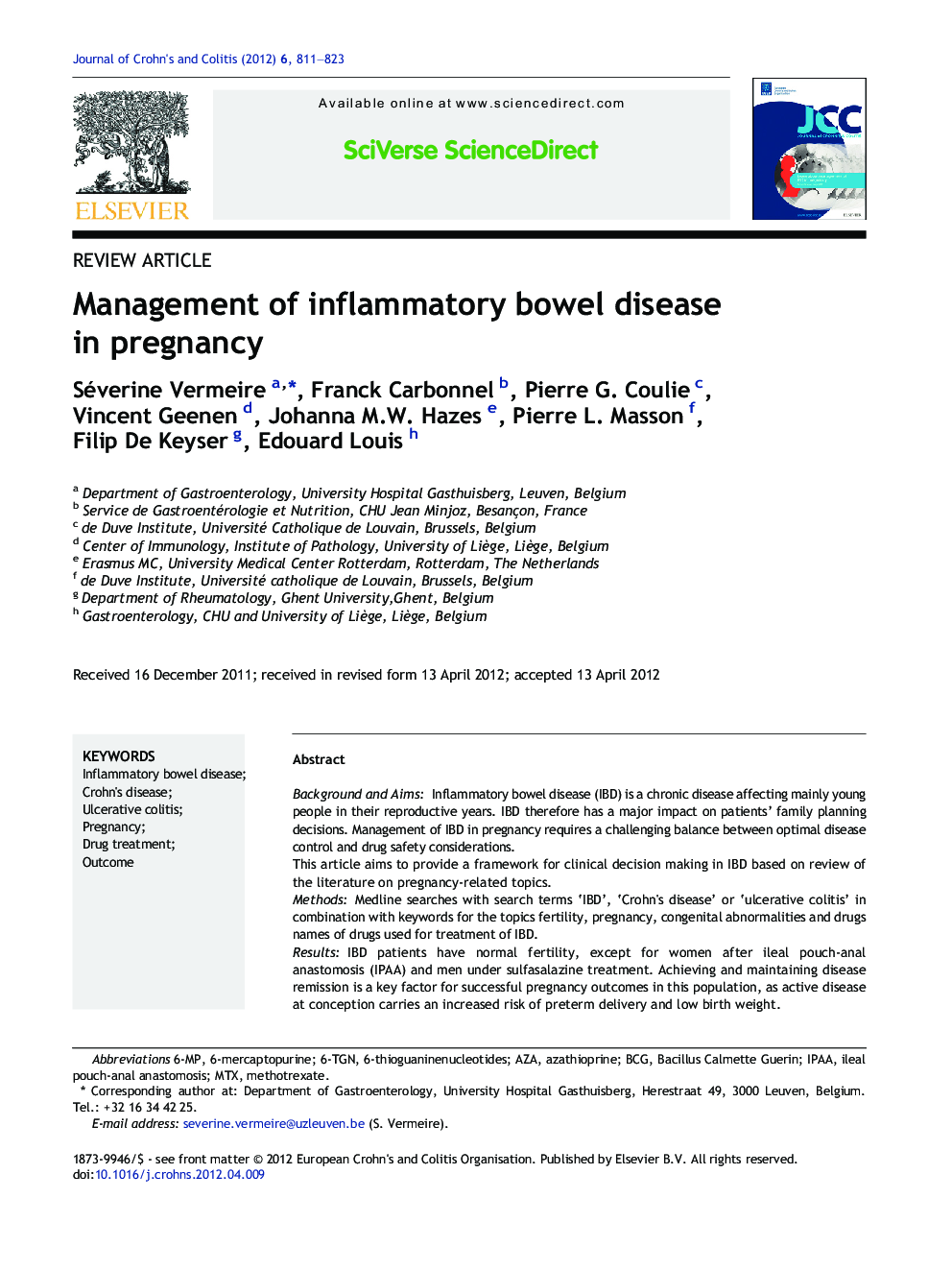| Article ID | Journal | Published Year | Pages | File Type |
|---|---|---|---|---|
| 6100364 | Journal of Crohn's and Colitis | 2012 | 13 Pages |
Background and AimsInflammatory bowel disease (IBD) is a chronic disease affecting mainly young people in their reproductive years. IBD therefore has a major impact on patients' family planning decisions. Management of IBD in pregnancy requires a challenging balance between optimal disease control and drug safety considerations.This article aims to provide a framework for clinical decision making in IBD based on review of the literature on pregnancy-related topics.MethodsMedline searches with search terms 'IBD', 'Crohn's disease' or 'ulcerative colitis' in combination with keywords for the topics fertility, pregnancy, congenital abnormalities and drugs names of drugs used for treatment of IBD.ResultsIBD patients have normal fertility, except for women after ileal pouch-anal anastomosis (IPAA) and men under sulfasalazine treatment. Achieving and maintaining disease remission is a key factor for successful pregnancy outcomes in this population, as active disease at conception carries an increased risk of preterm delivery and low birth weight.Clinicians should discuss the need for drug therapy to maintain remission with their patients in order to ensure therapy compliance. Most IBD drugs are compatible with pregnancy, except for methotrexate and thalidomide. If possible, anti-TNF therapy should be stopped by the end of the second trimester and the choice of delivery route should be discussed with the patient.ConclusionsDisease control prior to conception and throughout pregnancy is the cornerstone of successful pregnancy management in IBD patients.
